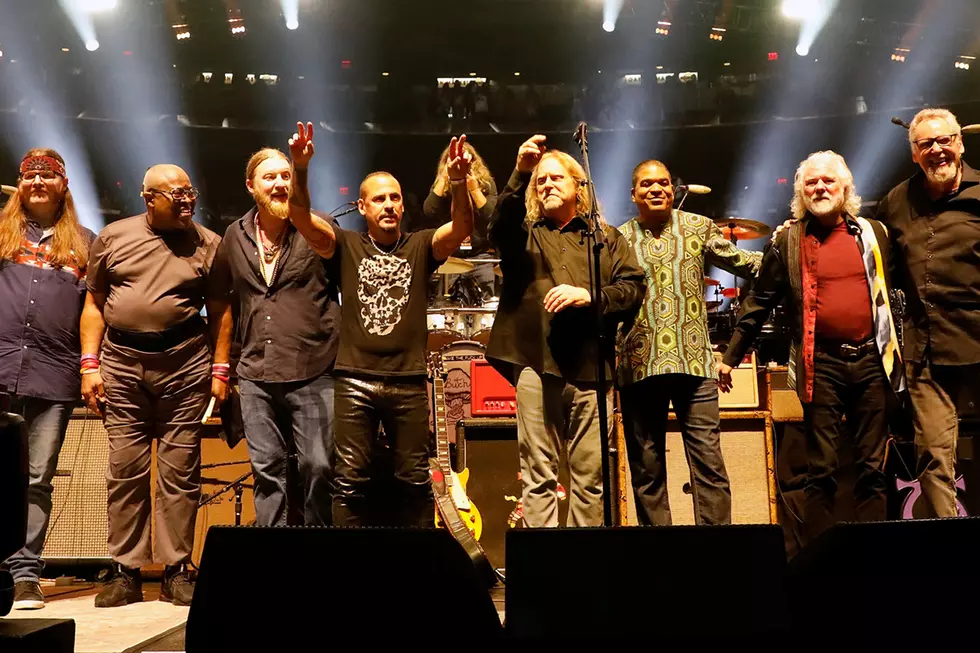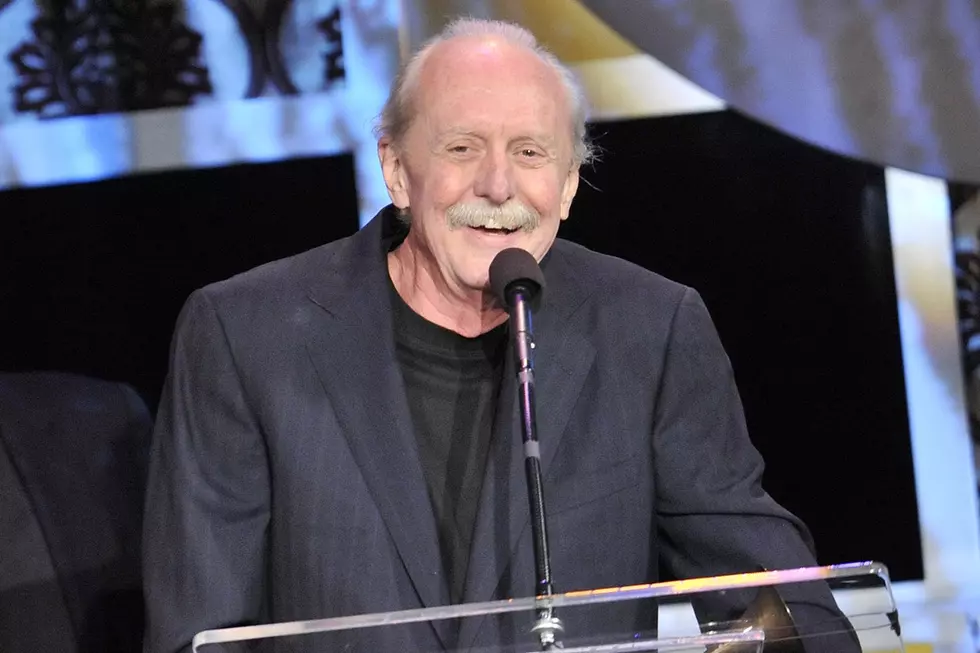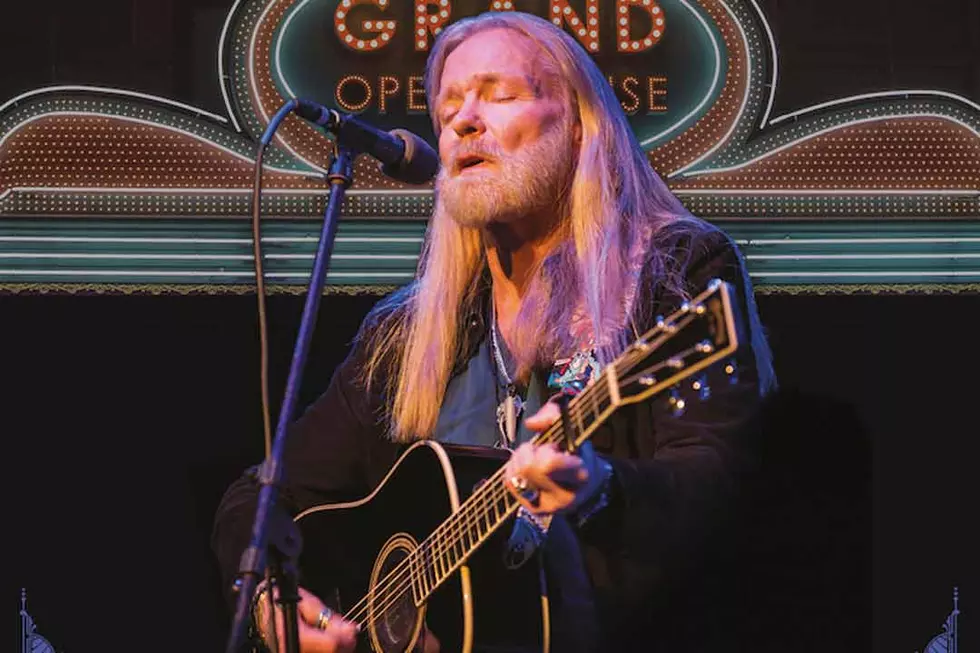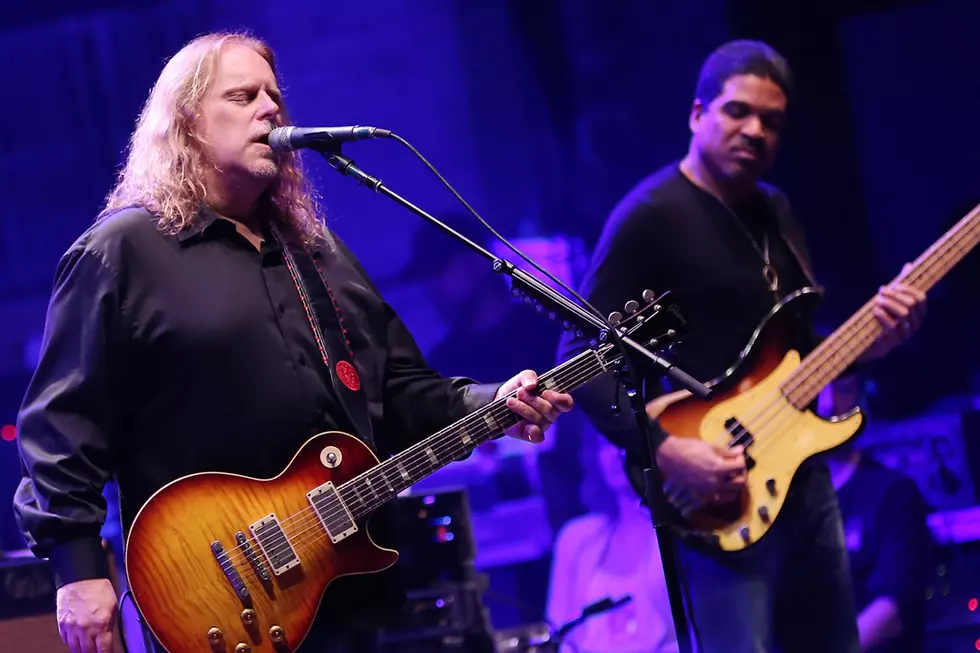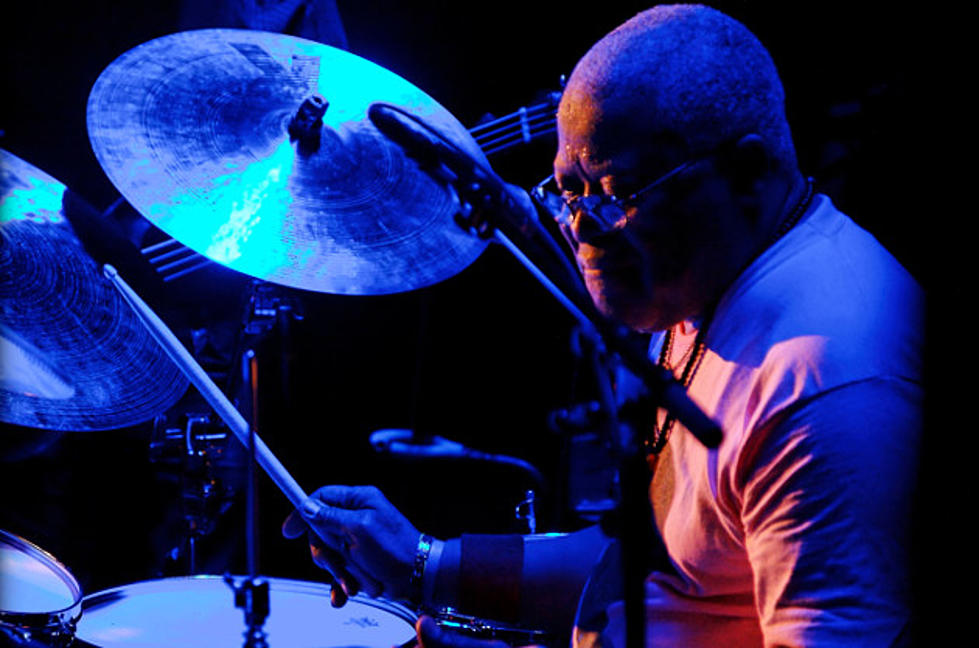
Jaimoe Of The Allman Brothers Band On Their Upcoming Performance At Mountain Jam + Drumming To A Different Beat
It’s been an eventful year for the Allman Brothers Band, since they announced in January that guitarists Warren Haynes and Derek Trucks would be leaving the group at the end of 2014.
Scheduled activities for the year, which marks the 45th anniversary for the group, were suddenly transformed into something that seemed like it might be a farewell victory lap. Since then, members of the group have expanded on their initial statements and while things still aren’t quite clear, it appears that there’s at least a glimmer of hope that the band could carry things forward in some form.
For the moment, they’ll stay focused on the music with a limited number of festival appearances scheduled for this summer, including an appearance at the 10th annual Mountain Jam, where the Allmans will perform their classic 1969 self-titled debut and the 1970 follow-up ‘Idlewild South’ in their entirety.
It’s their first appearance at Mountain Jam since 2009 and when we caught up with Allmans' drummer Jaimoe, he was quite enthused about the upcoming gig. When we asked him why the band had chosen to perform those two albums, he shared that the reasoning was pretty simple.
As he explained, the songs on those albums are shorter than some of the extended jams that wound up on subsequent Allman Brothers albums. What makes it special, is that they’ve only performed the albums in sequence a handful of times over the years.
“We’ve done it maybe three or four times in 45 years. It’s always been those two [together] or one of another one, like ‘Eat A Peach’ or ‘Brothers and Sisters.’
He digs the concept of doing a whole album. “People think that’s cool and it helps knock out what we’re going to play on the song list! [Laughs] That’s what I like about it.”
The veteran drummer sees quite a few possibilities in the future, including the chance to spend more time focused on his own band, Jaimoe’s Jasssz Band. He shared some thoughts on that subject as well as a few additional Allman Brothers stories during a recent conversation with Ultimate Classic Rock.
It seems like each Allman Brothers album has a few stories surrounding its creation. For the first album, whose idea was it to have the entire band pose naked for the photo that’s inside the gatefold album cover?
When I was at Muscle Shoals, it was basically Duane [Allman] and myself. Berry [Oakley] would come down in the middle of the week when it wasn’t really too busy. Because he was [working with] Second Coming, which Dickey [Betts] was in and Dickey’s wife, Dale [was also part of the lineup]. One day we were in the studio and I asked Duane, I said, “Hey man, you said you want to have two drummers -- why you want to have two drummers?” He said, “Because James Brown and Otis Redding had two drummers.” I never asked him anything else again about it! [Laughs]
I have no idea who came up with that [photo idea]. We were out at a little place where Otis Redding’s ranch was at and Otis and Alan Walden, Phil Walden’s brother, had adjoining properties. So we were shooting these pictures out on Alan’s property. That little creek that ran through there, I have no idea how in the hell we got in it, but I can tell you who filmed it. Phil Walden was out there and this guy Stephen Paley, a photographer from New York City.
I can’t remember who else was out there, but it was so goddamn funny, because somebody said, “Take your clothes off and y’all get in the creek.” S---, Lord knows, you might as well have been telling the policemen to have a donut. Everybody had their clothes on and there wasn’t nobody bashful about it. We all ended up in the f---ing creek!
For you as a drummer, was it an adjustment when you started playing in a setup where there was two drummers?
No, because I played in high school marching band and there was a lot of drummers. This is what I don’t understand about most drummers. They play in marching bands in school and if they played in the symphony orchestra, then they understand about a bass drum, a snare drum, cymbals -- the percussion instruments, because basically a set of drums, that’s what a set of drums is. They have a problem and they say they can’t play with another drummer.
That to me sounds like baseball -- everybody wants to be the Goddamn pitcher! I don’t know what for -- I never wanted to be a pitcher! I always wanted to play first base or center field! Billy Cobham heard Butch [Trucks] and me playing one day. He said he kept sitting there listening to that and he said, “Man, that drummer guy’s playing some interesting stuff.” He said he couldn’t stand it any longer, so he came downstairs to see who the drummer was and he said it was two drummers. He said he couldn’t believe it. He said he could never play with two drummers. Now, he was in Drum and Bugle Corps in the Army and all kinds of stuff.
There’s quite a few people who said they couldn’t play with two drummers and I don’t understand it. It’s no different than playing with two guitar players, two trumpets or two anythings. There’s space there and I’ve seen one drummer cover as much space as three or four drummers, or three or four guitar players playing. One guy with an attitude could probably play as much as all of them. But [playing] together, I don’t have a problem with that. It opens your head up to other ideas and different approaches -- it does for me, anyway.
The festival scene has become a big thing for bands in recent years, to the point that you can largely build a tour around festival appearances like this one. You’re playing in front of large crowds and because of the nature of the event, you’re constantly reaching new fans. That has to be pretty cool, 45 years into this thing.
It’s almost like [being] a teacher. People ask me, do I teach? I don’t teach. If you’ve got a problem, I can help you work it out, but I’m no teacher. My wife’s a teacher and she’s a damn good one. A person like me could reach people that kind of have an idea what I’m doing and maybe a few musicians, probably between the age of 15 and 40 or 50. But a teacher can reach people from 8 to 80 and they know how to do that.
What’s going on with your band? You had the ‘Renaissance Man’ album in 2011. Is there any new music percolating on that front?
We have an album in the plans. About four or five months after the first album was released, I was ready to do another one. But it’s got a lot to do with material and I want other people in the band writing other than [guitarist] Junior Mack. He wrote most of the songs on that [first album] and there’s no problem with it -- he had songs and nobody else did have songs that was the kind of stuff [that fit that album]. He writes so different -- you hear one of his songs and then you hear another one and it sounds like another person wrote it. Most people who write, you can hear a lot of their personality in a lot of their songs.
He seems to have the ability to show different [sides of himself] and I think [he does that] really well. I don’t know about the other stuff, but a lot of it has to do with [the fact that] I don’t really want anything sounding alike. I mean, it should have the flavor, but every person has their own personality and every song has its own personality. Even with Stevie Wonder, I listen to some of his albums sometimes -- not as much as I used to, but listening to it, it begins to sound like a symphony when you just put them on and let them play. Turn ‘em up and just forget about it -- it begins to sound like a symphony. You can hear little nuances that was influenced by this, that or the other.
Dickey Betts’ writing does a lot of that. I think a lot of that on Dickey’s part is because he writes pretty much alone. You know, he writes with other people, but when he does there’s too much over-influence….not [with] the baking of the cake, but putting all of the icing on it. When you don’t have someone that puts that kind of stuff on songs that you’re recording or songs that you write, it limits the range of where you can take it. You only have four or five personalities to work with.
You’ve got double shuffles, you’ve got funks, you’ve got ‘Stormy Monday’-type stuff], so you’ve got maybe four or five little personalities that you can work with. What makes it different is when you have people that do arranging and they can put all kinds of little icing and stuff on the songs. Because Ray Charles really, it was like Disney -- he just moved the characters around. I’ve been listening to his music a long time and he basically moves the characters around in terms of the arrangements and what he uses, he uses a lot of mambos, a lot of church-feeling stuff and that’s like when he’s doing most of the writing for his compositions and that’s basically what Disney does.
He’ll take Tarzan and Tarzan will be the girl in this one and the prince in the [other one], he’ll be this. There’s two or three stories that they have and they just move it around!
I just play music by listening and responding, so I don’t know anything about writing songs or arranging and all of this stuff. You know, it’s in my head, but I don’t know how to get it out. So I have people who know how to do that and you’ve just got to try to keep it as interesting as possible without getting too complicated. So that things don’t sound like MTV. You’d walk by MTV an hour ago and you come back and it seemed like the same song was playing. I want to stay as far away from that as I can in my band.
I saw a quote from you about this band that I love, regarding why you do this project outside of the Allman Brothers and you said that “I get to play music, can’t nobody fire me, and I have horns and one drummer.” When you put it like that, there’s no reason why you wouldn’t be doing what you’re doing with this band.
My band, I’ve basically tried to build it on the same thing as what I’ve been doing for 45 years. I mean, there’s a lot of stuff that went on in the Allman Brothers Band. A lot of stuff, musically.
More From 103.7 The Hawk

